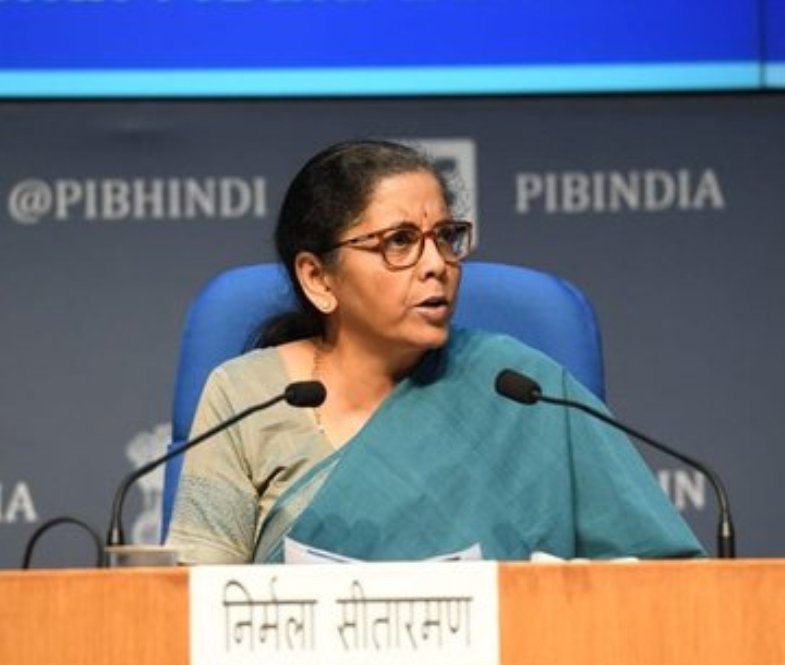 GST tax
GST tax Hotel stay, hospital rooms among items to cost more as GST Council imposes tax: Check out detail
New Delhi/UNI: The GST Council chaired by Finance Minister Nirmala Sitharaman on Wednesday decided to rationalise rates to remove the inverted duty structure and withdraw GST exemption in case of many items leading to a hike in tax rates.
As a result, GST rates would now go up for many goods and services with effect from July 18, 2022.
Following the two-day meeting, the Council has recommended revising GST (goods and services tax) on a number of items such as knives with cutting blades, paper knives, pencil sharpeners, spoons, forks, ladles, skimmers, cake-servers to 18% from 12%.
Machines for cleaning, sorting or grading, seed, grain pulses; machinery used in milling industry or for the working of cereals etc; pawan chakki and wet grinder would also attract 18% GST from 5% now.
Significantly, hotel accommodation priced upto Rs 1,000 per day shall be taxed at 12% while hospital room rent (excluding ICU) exceeding Rs 5,000 per day per patient shall be taxed to the extent of the amount charged for the room at 5% without input tax credit (ITC).
Some experts said that the rate hike would add to inflationary pressure to some extent but the move was in the right direction.
"There will always be two points of view on rate hikes on individual items but directionally the GST Council decision is right as it seeks to correct inversion and reduce exemptions," said Pratik Jain, partner at PwC India.
Bipin Sapra, tax partner at EY India said that some of the changes in rates are welcome changes but in some cases, it could have been done in a better way.
The GST Council also decided to withdraw tax exemption to bank cheques and impose 18% GST.
Similarly, maps and hydrographic or similar charts of all kinds, including atlases, wall maps, topographical plans and globes would be out of exemption and attract 12% GST.
Commenting on GST Council recommendations, Vivek Jalan, Partner, Tax Connect Advisory said, "The government had last month cut excise duties on petrol and diesel and exempted Customs duties on items such as sunflower and soybean oil which was expected to cost the exchequer Rs1.5 lakh crore in FY 2022-23. These GST rate increases would make up for some part of this and would take up the GST collections above Rs 1.5 lakh crore per month."
Jalan said that as a result of the GST Council’s decisions, the rate of various agricultural items like packaged cereals, wheat, maize, rice, etc which are unbranded but sold in a labelled package may increase by 5% due to an expected change in GST rule.
Edible oils, as well as milk products, are also likely to become costlier as a result of the GST rate increases on various related goods and services and changes in GST rules, he added.
Following the GST Council meeting, an official press release clarified that electric vehicles whether or not fitted with a battery pack, are eligible for the concessional GST rate of 5%.
As per the release, composition taxpayers would be allowed to make intra-state supply through e-commerce operators subject to certain conditions.
The Council directed that the Group of Ministers (GoM) re-examine the issues on casino, race course and online gaming in terms of reference based on further inputs from states and submit its report within a short duration.
The Council decided to constitute a GoM to address various concerns raised by the states on GST Appellate Tribunal and amendments in CGST Act. The Council, however, did not take decision on extending compensation cess to states.
"There were about 16 states which talked about compensation cess but all of them did not ask for extension of compensation cess," said Sitharaman while briefing the media.
Support Our Journalism
We cannot do without you.. your contribution supports unbiased journalism
IBNS is not driven by any ism- not wokeism, not racism, not skewed secularism, not hyper right-wing or left liberal ideals, nor by any hardline religious beliefs or hyper nationalism. We want to serve you good old objective news, as they are. We do not judge or preach. We let people decide for themselves. We only try to present factual and well-sourced news.







